"If I Didn’t Buy So Much, I’d Save for a House”—Five Women on What They Really Spend on Beauty Each Year
From a millennial UN official to a Gen Z investment banker
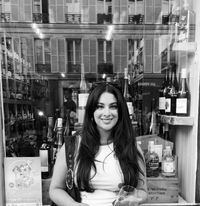
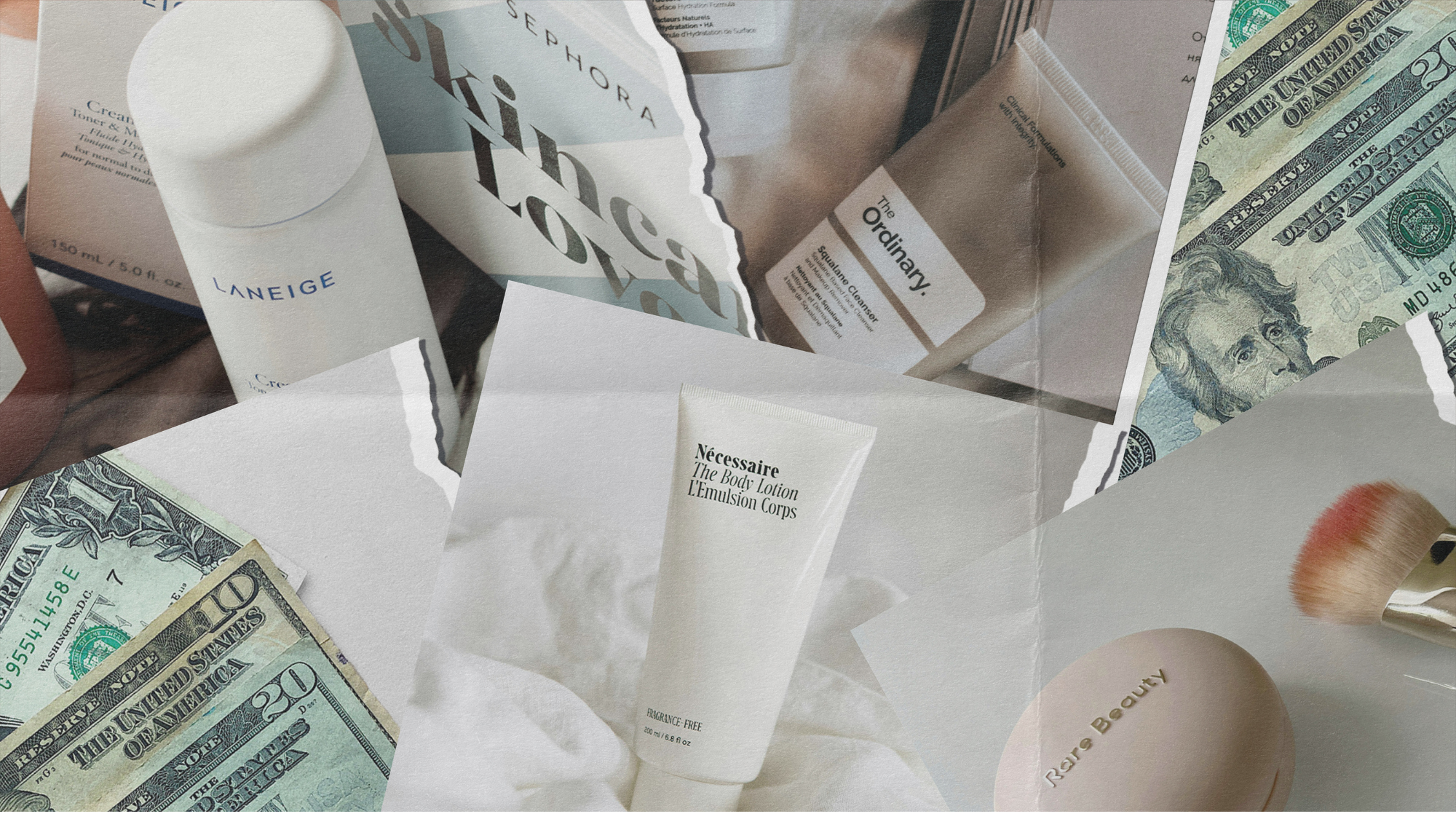
Women have always been subject to a "beauty tax", but in 2025, there's perhaps more pressure than ever to meet societal expectations. And, the latest buzzword to take the industry by storm—longevity— isn't just front of mind for older generations, it's something that Gen Z and Gen Alpha are prematurely becoming preoccupied with too.
Putting aside the creativity and joy that make-up can bring, it's worth noting that we're spending more than ever on beauty. As The British Beauty Council tells me: "Upcoming data, set to be released next month, shows that consumer spending is driving beauty here in the UK, and that our contribution has only increased year on year. They add that prestige fragrance saw a 20 per cent increase in unit price in 2024, and that this will undoubtedly have been echoed across other categories too.
To understand how we are being affected as 'Big Beauty' becomes ever more present in our lives, I spoke to five women, from different demographics, to glean how much they spend on aesthetics over a year. This is not an exercise in comparison—rather, it's an opportunity to unpack how much our professions and social media, as well as the overarching beauty standard, influence our spending.
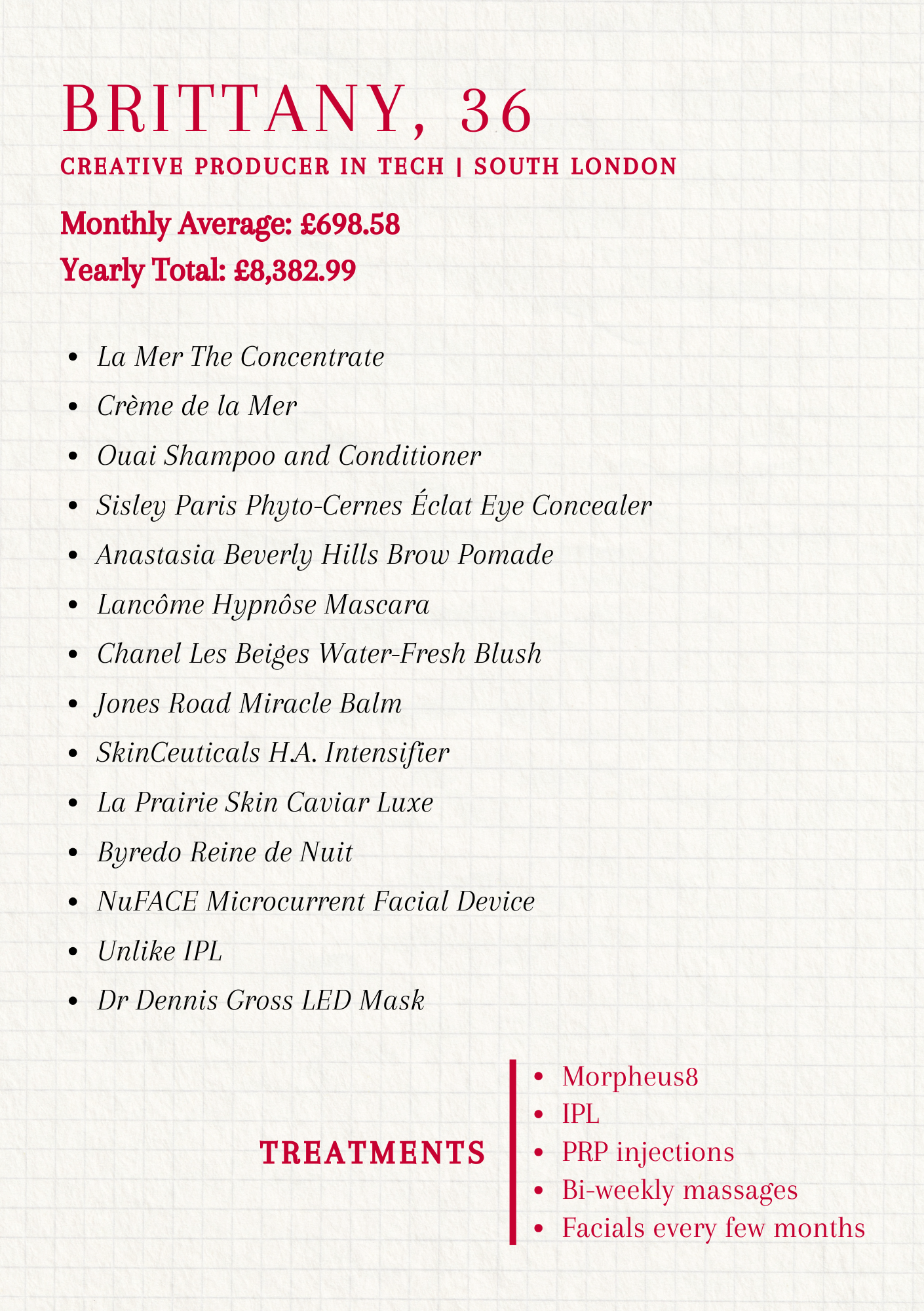
How are you expected to present yourself at work?
I work on a design team in tech where I lead creative campaigns, mostly animation, live action and visual storytelling. There's no formal dress code, but people tend to show up looking effortlessly stylish and well put together. There's no external pressure, but I do put some on myself. I get a bit anxious in social situations, so I try to avoid spaces where I don't feel like I can show up as my full self. I've finessed my routine over many years, and I'm always told I look younger than I am. I have a stepmum who looks 35 from the work she's been doing over the last 30 years at the SpaMedica I go to in Canada, whenever I'm visiting home. So I have had guidance.
Do you feel pressured to buy products and undergo aesthetic treatments?
Looking put together helps me feel more grounded and confident—it’s less about impressing anyone else and more about how I feel in my skin. I would maybe buy fewer products if I could, but I actually enjoy it; it feels like self-care and a ritual. I buy what I buy because it’s what makes me feel good, not because I feel like I have to. If I didn’t spend so much on beauty, I would spend it on plants, weekend getaways, house renovations, and nice ingredients for cooking.
Celebrity news, beauty, fashion advice, and fascinating features, delivered straight to your inbox!
Are you impacted by the beauty standard?
I am, of course—even when I actively push back on certain ideals, it’s still there. I've internalised it: how to show up, how to be seen, what’s considered 'professional' or 'attractive'. I just try to make choices that feel good to me and always try to ask myself the 'why' if I'm not feeling super comfortable in myself.
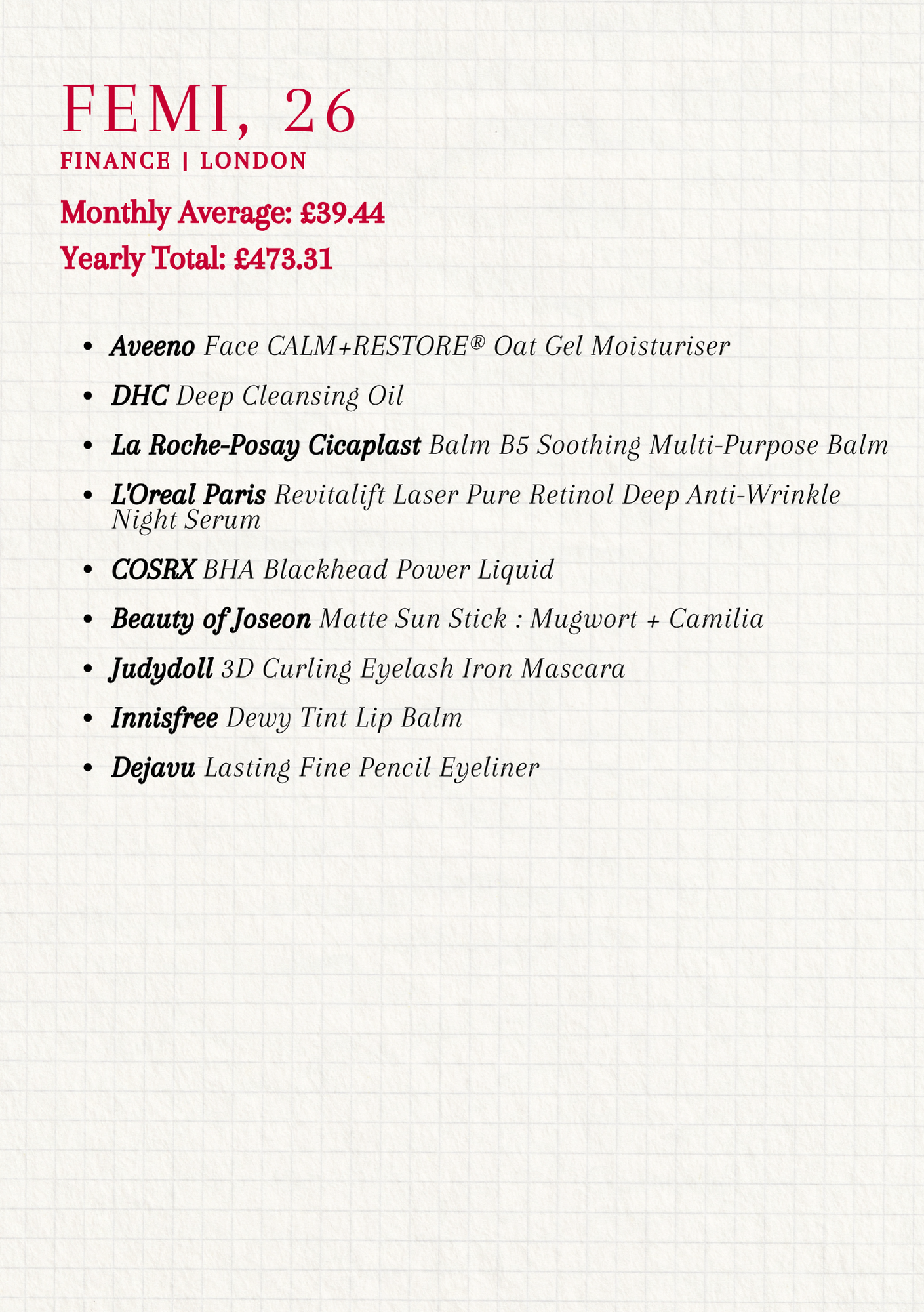
How are you expected to present yourself at work?
I have been working in investment banking for over four years now. My typical day-to-day comprises working with companies and private equity firms on mergers and acquisitions transactions and advising them on strategic options. I am expected to dress relatively formally, and we generally need to look well put together. This is something I like to do as I find it gets me in the right headspace.
Do you feel pressured to buy products and undergo aesthetic treatments?
I don’t feel a pressure to wear more or fewer products, as I find it to be a self-care thing for me.
Are you impacted by the beauty standard?
To some extent, yes. Though this is more from social media and being influenced to always have the next best and trending thing. I think that can be harmful and promote a culture of overconsumption, so I am trying to be more mindful of what I buy.
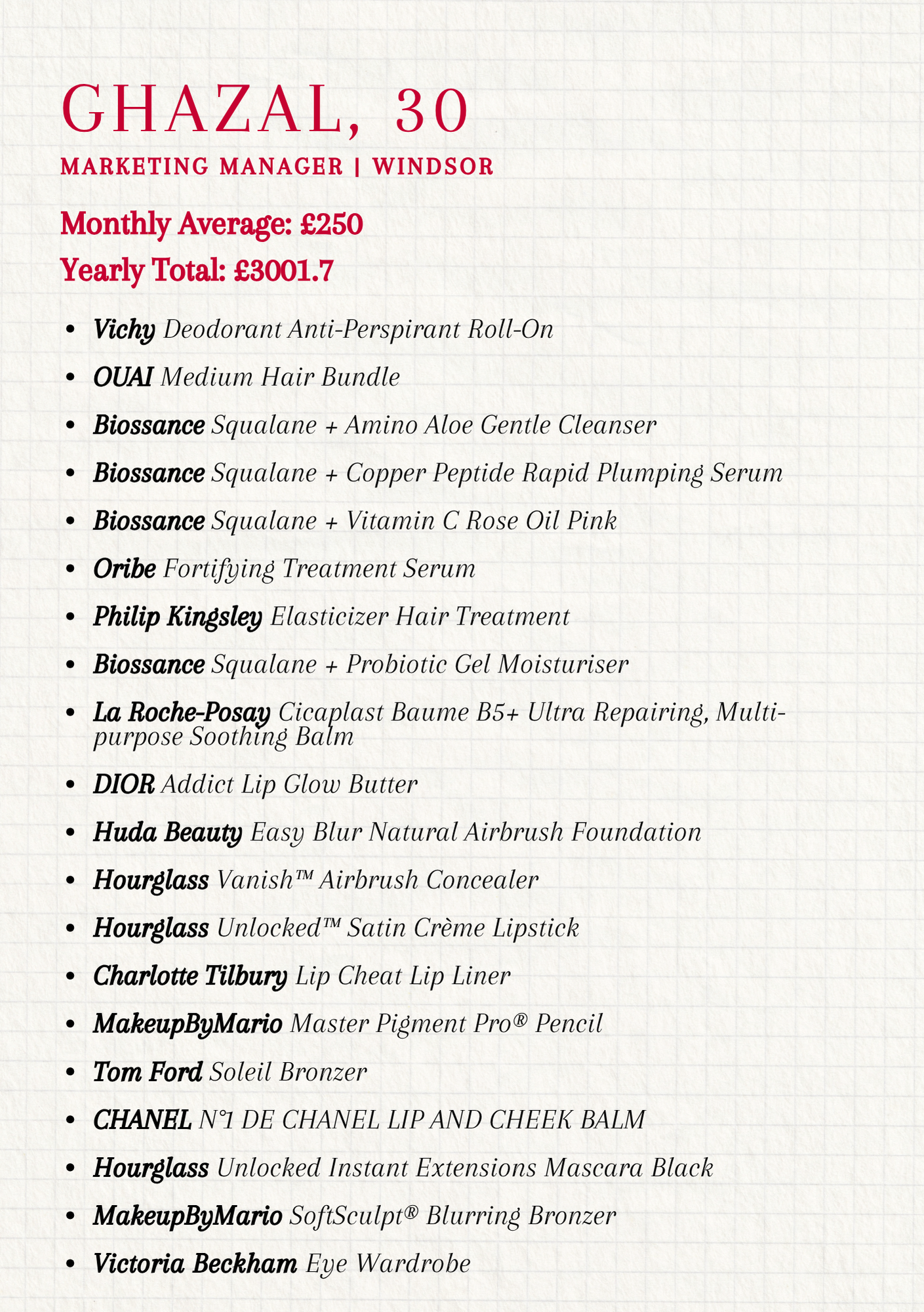
How are you expected to present yourself at work?
I develop and execute marketing strategies to promote specific medicines to doctors. I analyse market trends, collaborate closely with medical, regulatory, and sales teams, and ensure all promotional materials comply with industry regulations. The dress code at work is business casual, with the general understanding that crop tops and clothing with lewd slogans are off-limits. There’s an unspoken pressure to 'represent the company,' and while no one may directly comment, showing up in a T-shirt or jeans definitely invites judgment.
Do you feel pressured to buy products and undergo aesthetic treatments?
If I didn’t spend so much on make-up, I’d save for a property or holidays! I would like to spend less on beauty products, and I’d prefer to have one simple skincare routine, but my eczema complicates things. Sometimes my regular creams make it worse during a flare-up, and when my skin is back to normal, the eczema creams are too heavy for everyday use.
Are you impacted by the beauty standard?
Yes and no. I’ve become increasingly conscious of how over-consumerism is fuelled by social media, and I actively try to push back against that by avoiding trends and choosing products based on genuine research, reviews, and quality. But I’d be lying if I said I wasn’t affected at all. Being a woman in today’s society means being constantly bombarded with curated images of 'perfection'—flawless skin, toned bodies, effortless beauty routines—which can make you feel like you’re falling short, even when you know it’s not real.
The pressure isn’t always about wearing make-up or looking a certain way—it shows up in subtler forms too, like feeling guilty for not going to the gym or worrying about ageing before you’re 35. Social media normalises routines that are expensive and time-consuming, making them feel like basic self-care rather than luxuries. So while I try to stay grounded and make conscious choices, I don’t think it’s possible to be completely untouched by those expectations. They seep in, especially as a working woman who is also expected to 'look the part.' It’s a complicated balance between autonomy and influence.
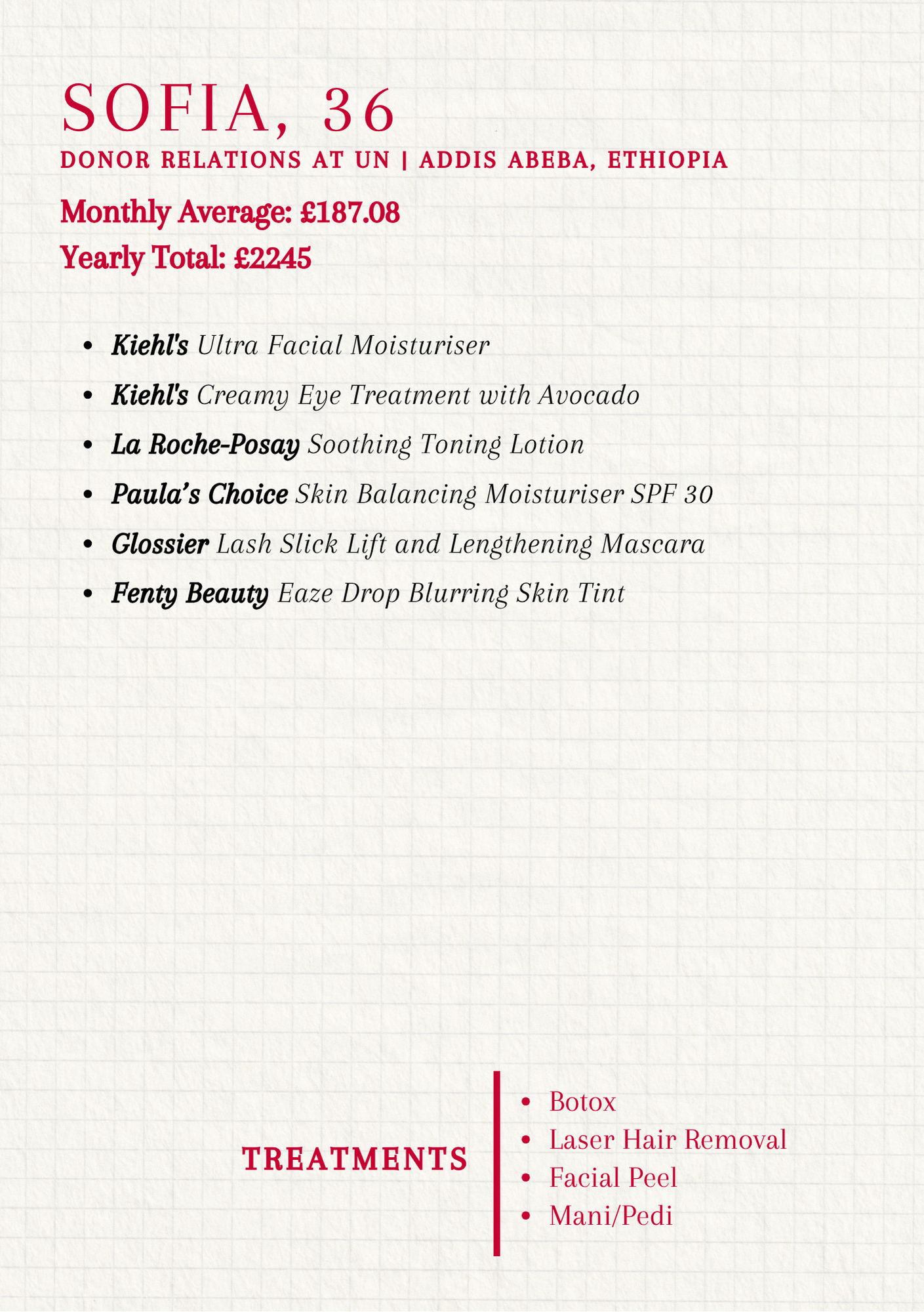
How are you expected to present yourself at work?
I am head of partnerships for a UN agency, currently based in Addis Ababa, Ethiopia. I am expected to look put together in case there are external or senior meetings, but casual if not. There's no explicit pressure on me because I enjoy having occasions to dress up—I like wearing make-up, wearing dresses and accessorising.
Do you feel pressured to buy products and undergo aesthetic treatments?
I don't buy that many to begin with, as I lived and worked in Iraq for years, which meant that I got out of the habit of buying products, even though I like to look nice.
Are you impacted by the beauty standard?
Definitely. I feel the pressure to have a certain body shape, to have perfect skin and stay on top of upkeep—so nails and laser. I feel like I have to look a particular way, and that includes gorgeous, flawless skin, which I don't have.
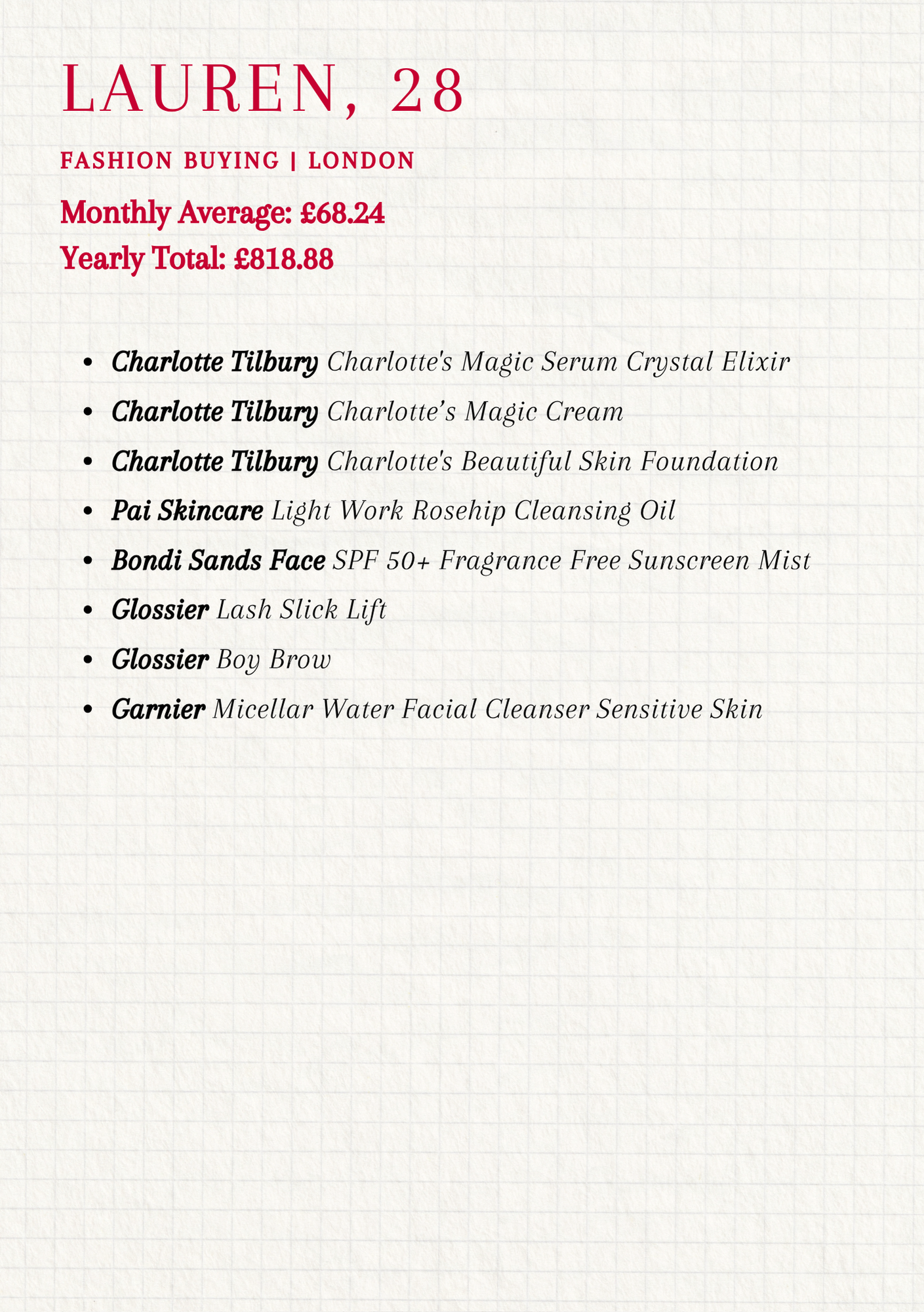
How are you expected to present yourself at work?
I work in fashion product management from design and concept to landing in store. My workplace, despite having a corporate and financial side of the business, lets the more product-led parts of the business show up as they please, which is super nice. It makes you feel more comfortable in your surroundings and with the people that you see every day when you can be yourself a bit more.
Do you feel pressured to buy products and undergo aesthetic treatments?
Yes absolutely! I feel like using such good quality products has really improved my skin, and I worry that if I started using less that I’d break out more regularly, or even that my skin would age differently. I could drop a few items, I suppose, but I like to know that I’m doing the best I can for my skin long term, even if some of the products are on the more expensive side. If I didn't buy so many products, I'd probably put it towards saving for a house, which sounds so bad when I say it out loud. But I think it’s really important to invest in yourself.
Are you impacted by the beauty standard?
Not at all. I’m quite happy in my skin, and I don’t really care for the opinions of others when it comes to beauty standards. It took me a long time to get here, and I’m really lucky that I feel like I can go out with no make-up on and not feel societal pressure to do anything a certain way. Wearing make-up, using beauty products, and my skincare routine is for me and no one else.
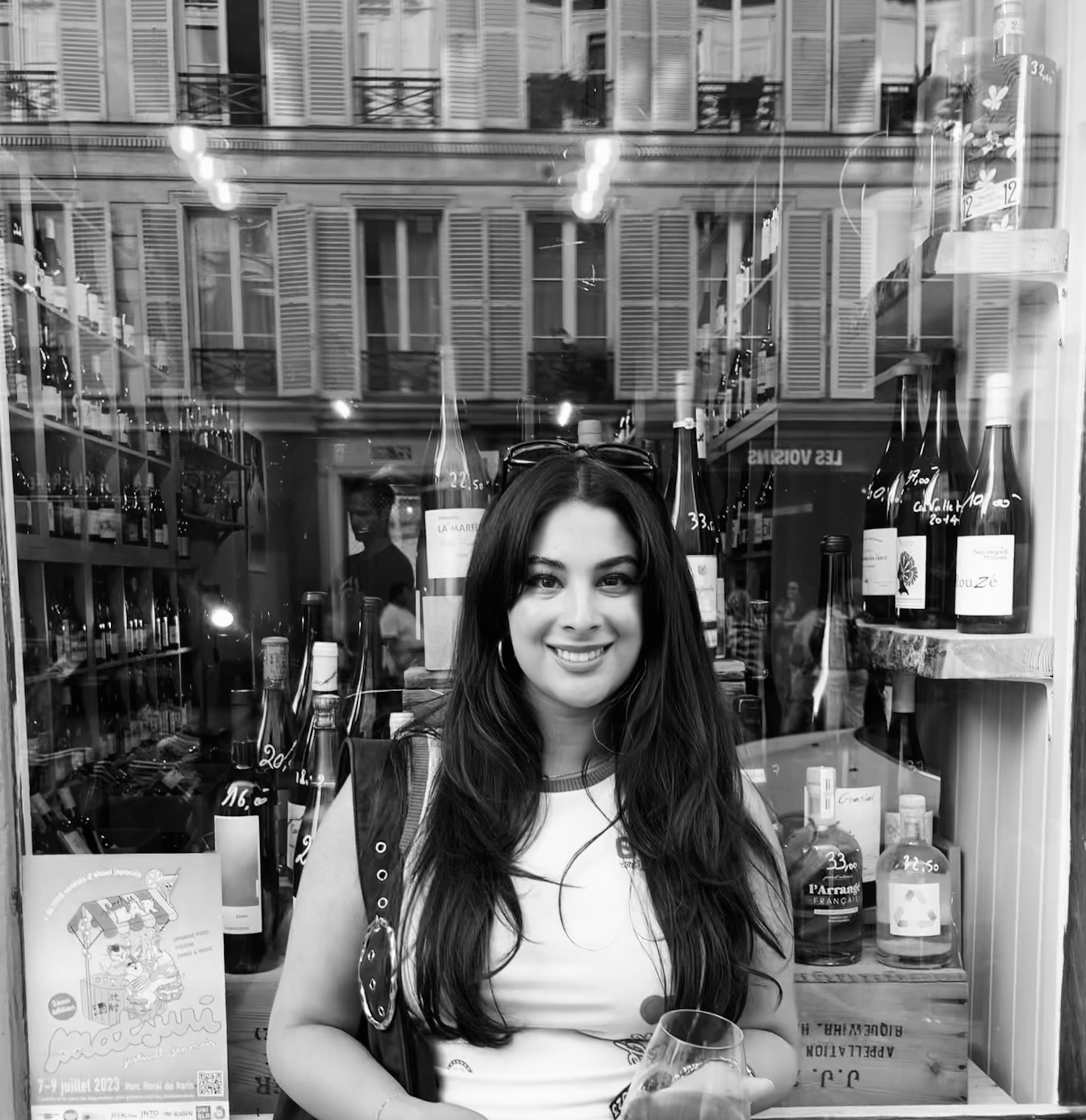
Nessa Humayun is the Beauty Editor at Marie Claire UK. With over eight years of editorial experience across lifestyle sectors, Nessa was previously the Editorial Lead of HUNGER Magazine, and has bylines in British Vogue, Dazed, and Cosmopolitan. A self-confessed human guinea pig, Nessa covers everything from product must-haves to long-reads about the industry writ large. Her beauty ethos is all about using products that work hard, so you don't have to.